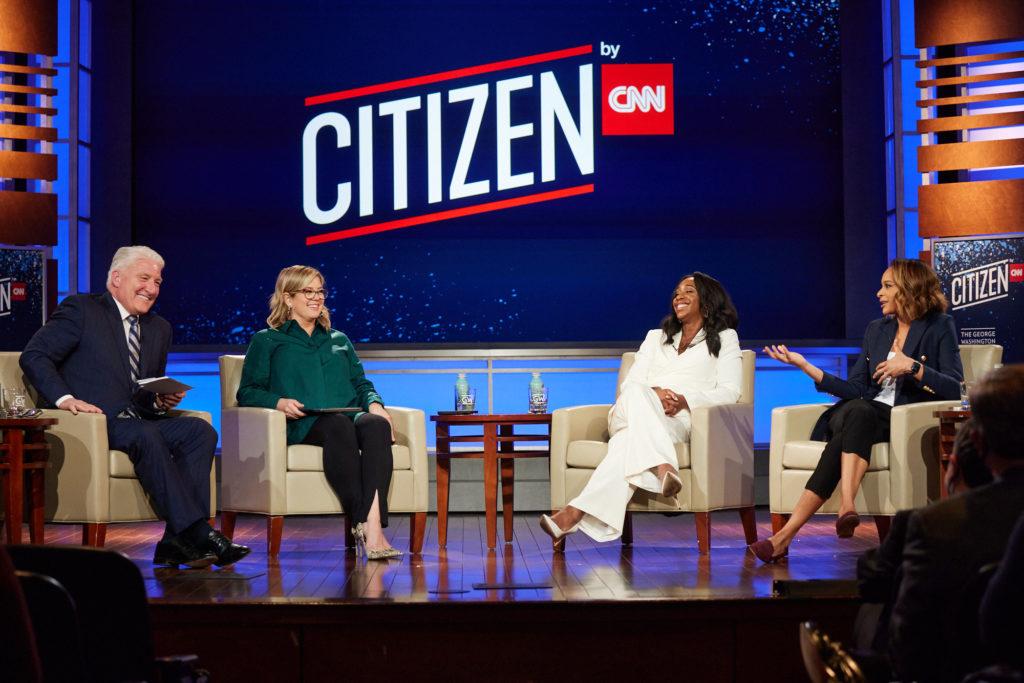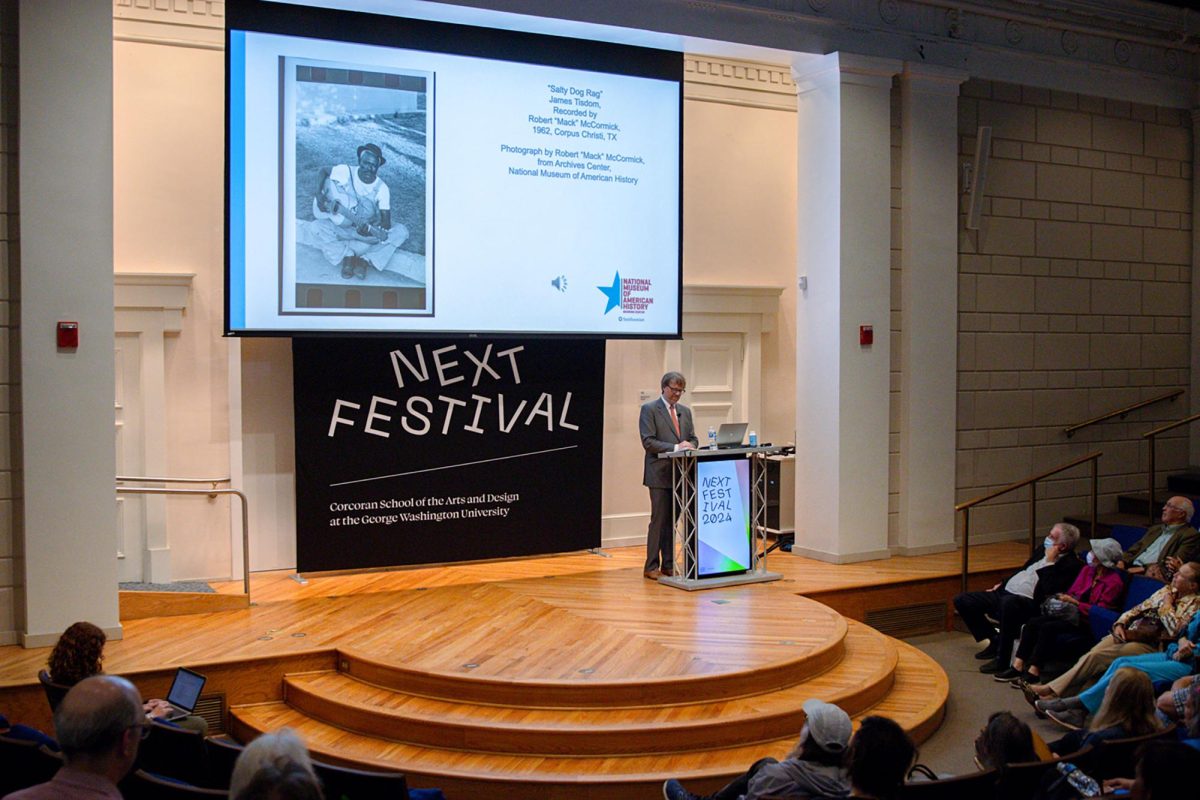CNN hosted its first in-person talk in two years at the School of Media and Public Affairs Wednesday, where four journalists recapped President Joe Biden’s State of the Union address.
John King, Nia Malika-Henderson, Abby Phillip and Brianna Keilar discussed Biden’s response to Russia’s invasion of Ukraine, partisan divisions in the United States, the American workforce and the mission of CNN’s reporting. More than 150 members of the University community attended the event at the Jack Morton Auditorium as the first of a new series that will take place on campus to create conversation on current events.
University President Mark Wrighton introduced the CNN journalists, saying the University was proud to lead the event’s mission of “learning, teaching, research and service.” The series comes as the newest installment of CNN programming based in Foggy Bottom, coming more than 15 years since the network broadcasted a political debate show called “Crossfire” from the Jack Morton Auditorium in the early 2000s.
“Through the Citizen by CNN series, we are helping to inform the public, facilitating open discourse and the exchange of different views on critical issues and giving our incredible George Washington University student leaders access to individuals who are shaping our country and the world,” Wrighton said at the event.
Brianna Keilar, an anchor of CNN’s morning show “New Day,” said Biden’s speech Tuesday night helped unite a divided Congress around the conflict in Ukraine, despite other polarizing policy issues he mentioned, including a call to “fund the police” that drew criticism in light of the “defund the police” movement. She said Biden had a responsibility to provide a direct tone on the situation for Americans because of the nation’s divide on how to handle other issues, like the pandemic or inflation.
“Especially at a time where we’ve seen cracks in American democracy, he needed to make clear that this was a moment about a choice – about what would prevail,” Keilar said. “And I thought that really was the tone that he struck.”
The conversation took place in light of daily Russian attacks on Ukrainian cities, leaving hundreds of civilians dead or injured. U.S. officials have responded by placing restrictions and sanctions on Russian goods in hopes of economically weakening Russian military forces and deterring the country from continued attacks on Ukrainian land, according to a White House press release.
Keilar said the constant escalation of the conflict has been “embarrassing” for Russia and has exposed the deficits of its government. She said it’s difficult to assess how the U.S. government should navigate the situation when Russian President Vladimir Putin has “cornered himself” against other global forces through his repeated attacks and escalation.
“How do you thread the needle between not aggravating a guy who’s been cornered and not doing something that is pacifying him?” Keilar said.
Nia Malika-Henderson, a senior political analyst at CNN, said the United States’ sanctions on Russia, which include higher costs on military equipment imports and barred Russian flghts from American airspace, are an effective approach but won’t deter Putin from continuing to bomb Ukraine. She said it is “frightening” to consider Putin continuing to launch explosive attacks on civilians.
“It is very likely that over these next days, we are going to see on our television screens unspeakable horrors unfold – lots of pain and suffering from people – and this could go on,” Malika-Henderson said. “It’s not clear that Vladimir Putin can be stopped.”
Malika-Henderson said Biden’s speech made efforts to appeal to Republicans, touching on conservative policy standpoints like funding the police. She said Biden is not “beloved” by his constituency, saying he may struggle to maintain a united base to hold onto Democratic seats in the upcoming midterm elections.
“No one is just in love with Joe Biden,” Malika-Henderson said. “People wanted him in office because they didn’t like what Donald Trump was doing.”
John King, CNN’s chief national correspondent, moderated the discussion and read off questions from members of the audience and viewers from across the country, targeted at national issues that Biden addressed during his State of the Union address. King turned to the panelists for expert insight but also emphasized the role of the media in modern affairs throughout the talk, citing the efforts to frame the story accurately and illuminate the truth during the reporting process.
“You see a lot of people who support the president who have legitimate fear that the former president may come back,” he said. “I think it’s our job somehow to help prevent that from happening because we are the people who said Trump’s lying about the last election. Our business must be pro-truth. We must be pro-facts. We cannot be pro-side. Because then we’re done.”
The CNN panel spent about six minutes discussing how the pandemic has thinned the American workforce and how businesses can incentivize workers to apply for one of the many job openings currently available in the country.
Abby Phillip, a senior political correspondent at CNN, said employers may need to reassess whether they continue to require a bachelor’s degree for their positions because some students may have dropped out after struggling with mounting student loan debt. She questioned when Biden would deliver on his promise to provide student loan forgiveness, citing how college debt is discouraging students from applying for higher-level jobs and stalling the economy,
“There’s a whole generation of people who can’t get into the workforce because maybe they didn’t even finish their college degree, and they still have the debt,” she said. “They can’t move on with their lives. And so all of that is holding the economy back. It’s preventing employers from finding workers. It’s preventing us from producing what we need to produce to meet the demand that’s out there.”








